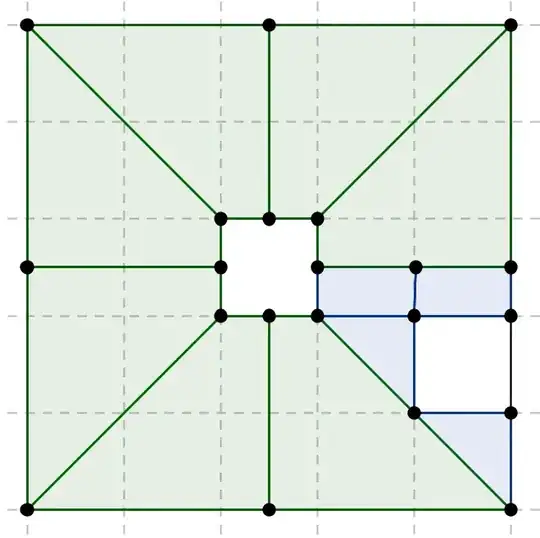I am not sure how to prove that if $n$ is odd then the square of $n$ has a remainder of $1$ when divided by $8$.
-
Have you considered looking at 1,3,5 and 7 mod 8 and what the square looks like? – JB King Sep 30 '16 at 02:19
-
$$(2m-1)^2 = 8\binom{m}{2}+1 $$ – Jack D'Aurizio Sep 30 '16 at 03:30
5 Answers
Suppose $n$ is an odd integer. Then $n = 2k+1$ for some $k \in \mathbb{Z}$, and so $$n^2 = (2k+1)^2 = 4k^2+4k+1 = 4k(k+1)+1$$ Why must this leave a remainder of $1$ when divided by $8$?
- 64,925
-
1
-
1@NickR: Yes... but my question was directed at the person asking the question as a hint towards finding the answer by themselves :P – Clive Newstead Sep 30 '16 at 02:20
-
If $n$ is odd, then $n$ is of the form $2k+1$. Then $n^2 = 4k^2 + 4k+1 = 4k(k+1)+1$. Now, for any $k$, we see the first term is divisible by $8$ since $k(k+1)$ is even. The remainder must be $1$ then.
- 71
$$(2k + 1)^2 = 4 k^2 + 4 k + 1 = 4 (k+1) k + 1$$
Since either $k$ or $k+1$ is even, we get $4 (k+1)k$ is divisible by $8$, proving your claim.
- 1,513
Consider a $n\times n$ grid minus the central square. You may divide such "square annulus" in eight parts with the same area, in such a way that each part has an even number of halved (horizontally, vertically or diagonally) squares, so the area of each part is an integer.
- 353,855
An odd number either one more or one less than a multiple of 4: i.e. $n=4m\pm1$. So $(4m\pm1)^2= 16m^2\pm8m+1$, as the first two terms are multiples of 8, an odd square is indeed 1 mod 8.
- 19,504
